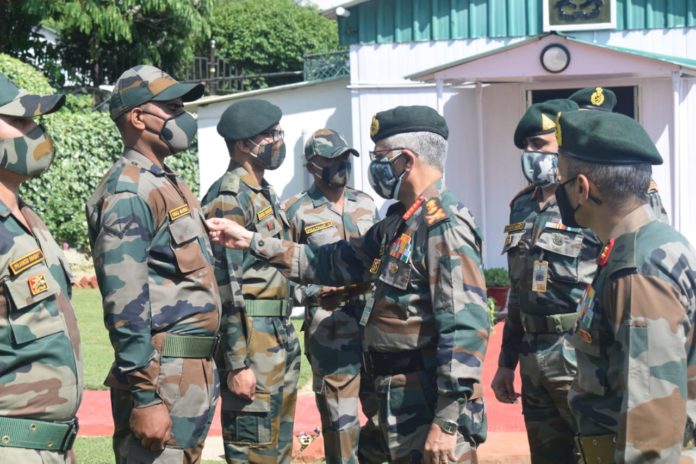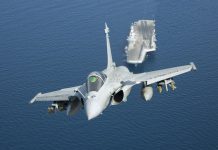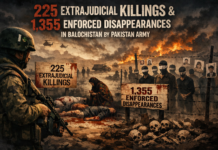Srinagar: “After a long time, we have reached a situation where peace and tranquillity prevails” in Kashmir. This is what Army Chief General MM Naravane has said after his two-day visit to Kashmir, including forward areas along the Line of Control (LoC).
He said he had been briefed by all military commanders on ground, both at the LoC and in the hinterland, and that “all the parameters, that we judge normalcy by, have seen great improvement.”
The Army Chief said there have been very few terrorist-initiated incidents, hardly any cases of stone-pelting and no cases of IED blasts in the recent past in Kashmir, which all are “indicators of a return to a sense of normalcy”.
Significantly, he made these comments a day after BJP Councillor Rakesh Pandita was gunned down by terrorists in Tral area of South Kashmir.
Also significantly, the Army Chief was in Kashmir valley on the day terrorists targeted Pandita.
According to the police, Pandita had been provided a secure lodging at a hotel in Srinagar along with police protection. However, he did not take along two PSOs, assigned to him, when he went to visit a friend in Tral where he was shot by three terrorists, the police said.
Pandita’s killing came two months after a brazen terror attack on a Municipal office in Sopore town in north Kashmir, in which a Councillor and a policeman were killed and another Councillor was injured on March 29.
About two weeks before that, a lone terrorist shot dead two policemen in Barzulla area in the heart of Srinagar. The terrorist, in broad daylight, audaciously walked up to the two policemen who were at a shop doing some purchases and pumped bullets into them before fleeing. The incident of February 19 was captured in a CCTV camera.
Two days prior to that, terrorists showered bullets at a Dhaba in Durga Nag area of Srinagar, just about 100 metres from UN office, injuring 22-year-old son of the owner, who succumbed to injures about two weeks later.
Significantly, the attack on well known Krishna Dhaba took place when envoys of 23 foreign countries were on a visit to Kashmir.
While such terror attacks have been going on, the security forces, at the same time, have achieved many successes in counter-terror operations in which a large number of terrorists, including top commanders, have been killed in encounters based on specific information.
Several overground workers and terror associates, who form the backbone of operations of terrorists, have also been arrested or killed by the security forces. The crackdown on overground workers helps in paralysing the activities of terrorists and their masters sitting across the border in Pakistan.
Asked about the possibility of troop reduction in Kashmir if the situation is improving, Gen Naravane said the forces will not be pulled out altogether but if the situation permits, “then definitely we do take recourse to pulling out some troops from active deployment to the rear areas. So they also get time for rest and relief.”
Meanwhile, infiltration has almost stopped ever since the Pakistan agreed to adhere to the border ceasefire from February 25.
Gen Naravane underscored that India will observe the ceasefire till Pakistan does it.
“The onus of making sure that the ceasefire holds is squarely on Pakistan. We are willing to observe ceasefire as long as they do so,” the Army Chief said.
“While ceasefire is on, other activities that they are indulging in, that is the terror infrastructure there on the other side of the LC, that continues. Therefore, there can be no slackening, as far as we are concerned, in our level of preparedness or alertness,” he cautioned.
He noted that there has been “decades of mistrust” between Pakistan and India and that the situation on that count cannot change overnight.
However, “if they continue to observe the ceasefire in letter and spirit, if they stop and desist from trying to push terrorists across and foment trouble in India, then all these steps will definitely go incrementally to build that level of trust between the two countries,” he said.








